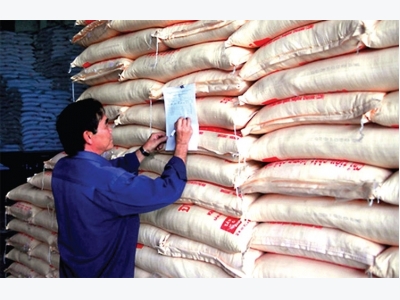Vietnams sugar inventory: Not so sweet

The Vietnam Sugarcane and Sugar Association (VSSA) has requested state authorities to take suitable measures to deal with sugar stocks and promote sustainable sales.
Sugar stocks have reached a record high
High inventory level
According to VSSA, from the beginning of 2017 until May 19, sugar mills nationwide produced more than 1.36 million tonnes of sugar. Due to stagnant sales, sugar stocks have reached 748,224 tonnes - the highest inventory level compared with the same time in the past several years (486,205 tonnes in 2016 and 496,790 tonnes in 2015).
VSSA attributed the high inventory level to unfavorable weather conditions, which led to late sugarcane harvests in the 2016-2017 crop, and increased smuggling resulting in stagnant sales of domestic products.
Moreover, the distribution and sales capabilities of domestic sugar companies remain poor. Many sugar mills still sell their products via intermediaries. A lack of customer service policies, especially customers using sugar as material for production, has hindered the development of sugar production chains and sustainable sales. Due to the absence of linkages between producers, traders and customers, sugar sales will face difficulties in the face of changes in output and price.
Solutions and petitions
In order to reduce sugar stocks and promote sustainable sales, VSSA said businesses should provide exact forecasts about their production output, allowing state authorities to implement suitable market management measures to ensure balance between supply and demand.
Each sugar mill needs to strengthen its sales network and target businesses using sugar as material for production, as well as sugar wholesalers and retailers, as strategic customers. Customer service policies should be applied for mutual benefits and sustainable development. In addition, sugar mills should seriously implement their commitments on quantity, price and delivery time. They need to create flexible sales plans to narrow the price gap between smuggled sugar and domestic products. A set of sugar quality standards should be set and publicized.
VSSA has requested ministries, sectors and concerned state authorities to intensify the struggle against smuggling, especially in border areas of southern provinces and the Lao Bao Border Crossing with Laos. Further, management should be tightened to prevent the presence of temporarily imported sugar for re-export in the domestic market. A tariff-rate quota of five percent should be applied to sugar imports from not only ASEAN countries but also other markets, such as Brazil, Australia and India, to increase competition among suppliers and prevent Vietnam’s dependence on costly imports from Thailand. Apart from exact supply and demand forecasts, timely market stabilization policies are also needed.
By May 19, 2017, sugar mills nationwide held a total of 748,224 tonnes in their stocks, equivalent to 54.9 percent of production output. These included 479,915 tonnes of unsold sugar from the previous crop. From the beginning of the year until May 19, they produced more than 1.36 million tonnes of sugar and sold more than 1.09 million tonnes.
Related news
 Unclear policies on hi-tech agriculture stifling investment
Unclear policies on hi-tech agriculture stifling investment Encouraged by the government’s promise to give support in land and capital, especially the VND100 trillion credit package announced in early 2017
 Cashew segment banks on higher sales in the EU
Cashew segment banks on higher sales in the EU The Vietnam Cashew Association has forecast exports for 2017 to rise 3.4% in volume and 5.6% in value against the figures for 2016 to US$3 billion
 Vietnam has to sell fruits cheaply because of poor processing
Vietnam has to sell fruits cheaply because of poor processing Vietnamese have to buy some imported fruits at exorbitant prices, but can only export fruit at low prices.